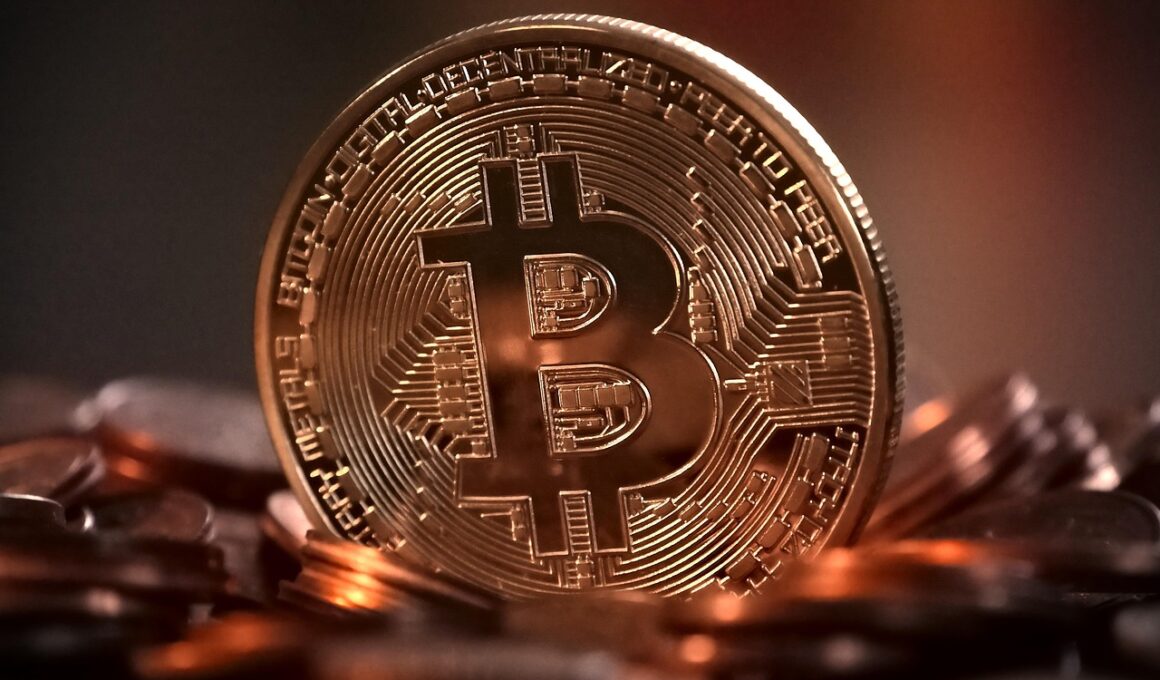The Risks and Rewards of Using Privacy Coins for Transactions
Privacy coins have gained significant traction within the cryptocurrency community due to their focus on anonymity and confidentiality. Unlike traditional cryptocurrencies such as Bitcoin, which are traceable, privacy coins aim to obfuscate transaction details, making it difficult to ascertain the source and destination of funds. Users seeking enhanced privacy may be drawn to these coins for various reasons, including safeguarding their financial data from prying eyes like governments and corporations. However, while the allure of anonymity can be appealing, it is crucial to understand the risks involved. One of the primary benefits of using privacy coins is that they can potentially protect users from surveillance and unwanted scrutiny. Furthermore, these coins can facilitate transactions in regions where economic instability prevails, providing a stable alternative. Despite these advantages, privacy coins face regulatory scrutiny and potential bans in several countries, as they are often associated with illicit activities. Users must be aware of the legal implications before engaging with these cryptocurrencies in their respective jurisdictions.
In addition to regulatory concerns, security is another vital factor to consider when dealing with privacy coins. While they offer heightened anonymity, some privacy coins have faced criticism due to vulnerabilities within their systems. As technology evolves, so do the methods used by malicious actors to exploit weaknesses. For instance, Monero and Zcash have implemented advanced cryptography to protect user data. Still, these innovations can be scrutinized and potentially undermined over time. Furthermore, the adoption of privacy coins may also fuel extra regulatory backlash from authorities aiming to crack down on money laundering and tax evasion. Therefore, potential users must remain vigilant and conduct thorough research to understand the inherent risks. In a rapidly changing landscape, investors should not only consider the potential for growth but also the downside of investing in privacy coins. There may be better-suited alternatives for some users seeking privacy without the additional baggage that comes with these coins, especially if they wish to adhere to lawful investment practices.
The Legal Considerations Surrounding Privacy Coins
The legality of privacy coins varies significantly from one jurisdiction to another, leading users to face a complex web of regulations. For some, using privacy coins can lead to serious legal troubles, depending on local laws governing cryptocurrency transactions. Regulatory bodies worldwide are keen on establishing rules around cryptocurrencies to promote transparency and curb illegal activities like money laundering or tax evasion. In many places, the use of privacy coins presents legal gray areas, creating uncertainty for users. Governments are increasingly scrutinizing exchanges that facilitate the trade of privacy coins, leading to potential bans in certain countries. It is crucial for users to research specific regulations applicable to their region before engaging with privacy coins. Users may need to evaluate the legal ramifications and consider whether protecting their anonymity is worth the risk of potential penalties. Failing to adhere to local laws can lead to forfeiture of assets or even criminal prosecution, making education about these legal landscapes essential for anyone interested in using privacy coins for their transactions.
Moreover, the risk of loss due to hacking and scams also looms large in the horizon of privacy coins. As these digital forms of currency grow in popularity, they become more appealing targets for cybercriminals seeking to exploit weaknesses. Many users have reported losing significant sums of money as a result of hacking incidents on exchanges that trade privacy coins. The anonymity that these coins provide can also attract unscrupulous individuals eager to defraud unsuspecting users. Therefore, employing robust security measures is essential when dealing with privacy coins. Users should always ensure that they opt for exchanges and wallets that prioritize security features, such as two-factor authentication. Being cautious about the storage of private keys and active monitoring of their crypto holdings can further reduce the risk of loss. At the same time, users should remain aware of their transaction histories, as any mistakes in sending coins may be irreversible in the world of cryptocurrencies. Knowledge about the risks and proactive measures ensures a safer experience when dealing with privacy coins.
Balancing Anonymity and Responsibility
Striking a balance between the desire for privacy and responsibility in cryptocurrency transactions is crucial for users considering privacy coins. While anonymity may provide significant benefits, it is imperative to utilize these coins responsibly to minimize the potential for misuse. Responsible usage entails being informed about the implications of financial anonymity and the potential repercussions tied to its use. Users can mitigate risks by only engaging in legitimate transactions and avoiding interactions with illicit organizations. Establishing networks with credible users and platforms can also fortify one’s standing as a responsible user of privacy coins. Social stigma surrounding privacy coins can also affect their acceptance among merchants and businesses. Moreover, rebuilding trust with traditional financial institutions can be challenging for users who solely rely on privacy coins for transactions. For users who value both their anonymity and their legal standing, engaging in constructive dialogues around privacy coins helps elevate the conversation and creates opportunities to bridge the gap between privacy needs and regulatory frameworks.
Despite the challenges, the adoption of privacy coins continues to rise globally, leading to evolving technology that enhances their functionalities. Developers are engaged in creating innovative solutions that encode transaction data further while addressing user concerns about security and usability. The emergence of decentralized finance (DeFi) applications that incorporate privacy features may broaden the use cases for privacy coins, making them more appealing for users. Projects like Secret Network and Pirate Chain explore combining privacy with decentralized finance to provide unparalleled user experiences. The introduction of these innovative technologies demonstrates the continued evolution of the cryptocurrency landscape and how privacy coins will play an integral role in shaping the future of digital transactions. However, users must stay informed about these advancements and continually assess their effect on market dynamics. With each improvement, privacy coins may gain a stronger foothold within legitimate spaces, paving the way for mainstream acceptance. Users can anticipate ongoing developments that can further enhance and legitimize privacy coins within a constantly shifting economic environment.
Concluding Thoughts on Privacy Coins
In conclusion, while privacy coins offer unique benefits for users seeking financial anonymity, they also come with significant risks that must be carefully considered. From regulatory scrutiny to security threats, engaging with privacy coins requires an understanding of their complex nature. Users must weigh the pros and cons and establish a responsible approach when navigating the world of cryptocurrency transactions. Staying informed about the latest advancements and emerging technologies can help mitigate some risks associated with privacy coins, and increase the likelihood of successful integration into everyday transactions. Additionally, engaging in discussions about the necessity of privacy in the digital age helps create a balanced perspective, allowing for more nuanced conversations surrounding financial privacy. Ultimately, the future of privacy coins will depend on regulatory developments, technological advances, and user responsibility. By actively participating in these dialogues and utilizing privacy coins judiciously, users can position themselves to benefit from this evolving sector of cryptocurrency while adhering to the principles of legality and security.
In summary, the landscape surrounding privacy coins is intricate, filled with numerous considerations for potential users. Understanding this balance between risks and rewards enables informed decision-making regarding the involvement with privacy-centric digital currencies. Users excited about the potential of privacy coins should stay avidly engaged with ongoing developments and advancements in the field, as technology and regulations continue to evolve. By being proactive and knowledgeable, users can navigate the complexities of transactions while preserving their financial privacy and acting responsibly within the cryptocurrency market.


